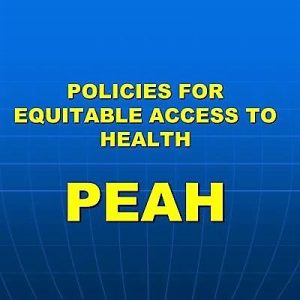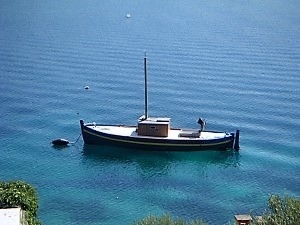PEAH-Policies for Equitable Access to Health aims to tackle ALL health priority challenges relevant to -though not limited to- climate safeguarding, fair access to care, medicines and food, disadvantaged/discriminated people and cultural diversity protection from a view encompassing the policies, strategies and practices of all involved actors.
Inherently, PEAH focus encompasses the best options for use of trade and government rules, the effects of current international agreements and intellectual property standards, the opportunities offered by new financing mechanisms and innovation models, and the ways for better coherence, coordination and collaboration among stakeholders supposed to streamline access to health priorities
By Daniele Dionisio
PEAH – Policies for Equitable Access to Health
Want to Contribute an Article to PEAH?
A platform maintained by Daniele Dionisio*, PEAH – Policies for Equitable Access to Health serves as an internationally oriented blog backed by academics and stakeholders from a number of organisations worldwide.
Not an indexed journal, PEAH runs without any monetary grant/funding/support. Nonetheless, it benefits from world scale audience actively coming to the website, while relying to date on around eight thousand regular followers whose numbers are on the rise on daily basis.
People from leading centres and institutions continue writing articles for PEAH, as shown by our Featuring section (see also links to 2023 2022 2021 and 2020 external contributions).
WILLING TO CONTRIBUTE AN ARTICLE?
Spontaneous submissions in the form of articles, editorials and blogs are welcome. Pieces dealing with the priorities and challenges first and foremost in the resource-limited countries, including for fair access to high-quality health treatments and care, food, and for climate safeguarding would be to the point.
PEAH aims to face, indeed, ALL health priority challenges relevant to -though not limited to- climate safeguarding, fair access to care, medicines and food, disadvantaged/discriminated people and cultural diversity protection from a view encompassing the policies, strategies and practices of all involved actors.
Inherently, PEAH focus encompasses the best options for use of trade and government rules, the effects of current international agreements and intellectual property standards, the opportunities offered by new financing mechanisms and innovation models, and the ways for better coherence, coordination and collaboration among stakeholders supposed to streamline access to health priorities.
No editorial requirements nor limits as regards the length and structure of your contribution, and you are invited to incorporate references as hyperlinks directly in the text.
Upon editor’s acceptance, your manuscript will enjoy free of charge, immediate online publication for circulation throughout PEAH network** and sharing on social media platforms.
You are free to re-publish your piece from PEAH, provided that PEAH quotation as the original source is included together with proper web-link.
If you wish to contribute, please submit to PEAH editor at danieledionisio1@gmail.com
* Daniele Dionisio is a member of the European Parliament Working Group on Innovation, Access to Medicines and Poverty-Related Diseases. Former director of the Infectious Disease Division at the Pistoia City Hospital (Italy), Dionisio is Head of the research project PEAH - Policies for Equitable Access to Health.
** PEAH network includes, among others, the EU Parliament Group on “Innovation, Access to Medicines and Poverty-Related Diseases”, representatives at the Italian Ministry of Foreign Affairs' Directorate General for Development Cooperation in Rome, leaders from academia worldwide, managers from emerging economies' drug industries and executives from UN agencies, Medecins Sans Frontieres and international NGOs, the Global Fund, Knowledge Ecology International, Indian Council of Medical Research, Quamed, Oxfam, SciDev.net, Devex, Health Property Watch, I-MAK, AFEW, Wemos, DNDi, the Italian National Institutes of Health,...


